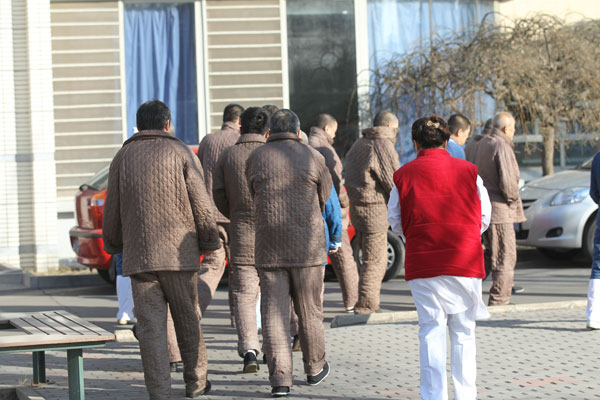Mental healthcare emerges from the shadows
Updated: 2012-02-03 09:44
By Yang Wanli and Wu Wencong (China Daily)
|
||||||||
Service shortage
The most recent data available from the National Center for Mental Health, part of the Center for Disease Control and Prevention, show that in 2009 China had more than 100 million mental disease patients, 16 million of them severe cases. That means one in 13 people in China has a mental problem, and one in 100 is a severe case.
The incidence of mental illness jumped from 27 per 1,000 in the 1950s to 175 in 2009. However, the numbers of psychiatrists and treatment facilities greatly lag the need.
CDC statistics show there is only one psychiatrist in China for every 900 patients, and one hospital bed for every 120 mental patients. In many county-level cities in underdeveloped regions, there are no mental hospitals.
The Beijing Health Bureau reports that the capital has 1,000 psychiatrists, about 2,000 psychiatric nurses - and an estimated 60,000 mental patients.
Huilongguan Hospital, the most renowned psychiatric hospital in Beijing, operates at an overload. It has 24 sections, each with average capacity for 60 inpatients. Only one is for patients who can take care of themselves; the rest are for severe cases.
The city's two other psychiatric hospitals, Peking University Sixth Hospital and Beijing Anding Hospital, operate at capacity. Sixth has about 500 beds and Anding more than 800.
 |
|
Outdoor exercise is part of the routine for patients at Huilongguan Hospital in north Beijing. China has a severe shortage of psychiatric hospitals and medical staff. Wang Jing / China Daily |

 Relief reaches isolated village
Relief reaches isolated village
 Rainfall poses new threats to quake-hit region
Rainfall poses new threats to quake-hit region
 Funerals begin for Boston bombing victims
Funerals begin for Boston bombing victims
 Quake takeaway from China's Air Force
Quake takeaway from China's Air Force
 Obama celebrates young inventors at science fair
Obama celebrates young inventors at science fair
 Earth Day marked around the world
Earth Day marked around the world
 Volunteer team helping students find sense of normalcy
Volunteer team helping students find sense of normalcy
 Ethnic groups quick to join rescue efforts
Ethnic groups quick to join rescue efforts
Most Viewed
Editor's Picks

|

|

|

|

|

|
Today's Top News
Health new priority for quake zone
Xi meets US top military officer
Japan's boats driven out of Diaoyu
China mulls online shopping legislation
Bird flu death toll rises to 22
Putin appoints new ambassador to China
Japanese ships blocked from Diaoyu Islands
Inspired by Guan, more Chinese pick up golf
US Weekly

|

|






